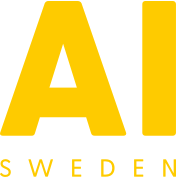Automated environmental monitoring with sailing drones
SLU Aqua Sailor is an unmanned sailing drone used for data collection in research and environmental monitoring. This project aims to explore the possibilities for processing and analyzing data on board the drone.

Too large datasets and delays between collection and analysis are common problems across all research fields. Data has primarily been analyzed manually during the time of year when fieldwork has not been possible, often resulting in conclusions being drawn months or even years after data collection. In recent years, technological advancements have increasingly enabled automated data collection, allowing for larger datasets. While fieldworkers can focus on tasks other than data collection itself. However, a challenge remains that environmental monitoring data collected in remote locations are too large to be sent as is; instead, historically, the data has been stored on board to be manually retrieved several times per field season.
The aim of this project is to explore the possibilities of processing and analyzing large data sets on board the sailing drone. Through this, we hope to achieve real-time analysis and partially circumvent the issue of large datasets that need to be manually offloaded from the drone.
The plan is to scale a successful solution to other autonomous sailing drones in Australia, Canada, and the Kattegat area. We also aim to provide visualizations of the results for the public and ultimately establish environmental monitoring increasingly based on real-time data.

Challenges
- Too large data sets to be sent
- Temporal lag in today's workflow
- A technically challenging environment to work in, as communication options and access to electricity are limited
Project purpose
Developing and testing capabilities for processing and analyzing large datasets at sea, on board an autonomous sailing drone.
Expected outcomes
Several different outcomes, both technical and non-technical, are linked to the streamlining and improvement of existing work methods. From an environmental perspective, we anticipate new AI-based methods for environmental monitoring, visualization of environmental monitoring data, and increased knowledge about the status of marine environments. At the same time, we aim to see increased knowledge and development regarding autonomous data collection and processing of large datasets at sea, which can then be expanded to other areas and domains.
Facts
Funding: SLU and Stockholm Resilience Centre (Stockholm University).
Project period: Planned to conclude on 30 June 2024, with the possibility of an extension.
Participants: SLU, AI Sweden, Stockholm Resilience Centre (Stockholm University), VOTO, Offshore Sensing (Norway), McGill University (Canada)
You can find more information about the project here:
For more information, contact


